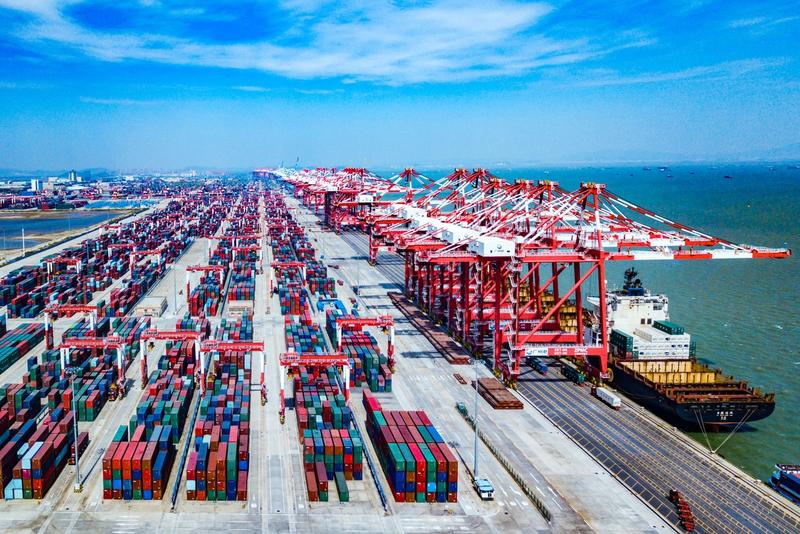FOCUS ON HOT SPOTS
Navigating the Waves of Logistics: A Deep Dive into Maritime Solutions
Published:
2025-10-05
Explore effective maritime solutions and industry strategies to optimize maritime transport in global logistics.
Introduction: Setting Sail into the World of Maritime Solutions
Ahoy there! If you've ever wondered how goods travel across oceans, you're not alone. The maritime industry, or as it's known in Chinese, maritime transport, plays a crucial role in global trade. Whether it's electronics from Japan, textiles from Bangladesh, or machinery from Germany, shipping is the backbone of international commerce. Let's drop anchor and explore effective strategies for optimizing maritime logistics.
Understanding the Maritime Landscape
First off, let's talk about whatmaritime transport entails. In essence, it's the transportation of goods via sea routes. But it's not just about loading containers onto a ship and sailing away. There's a whole world of strategy, planning, and coordination involved. From port logistics to customs clearance, each step is vital in ensuring that goods arrive safely and on time.
The Importance of Efficient Planning
Now, you might be thinking, “What's the big deal about planning?” Well, let me tell you, it's everything! Think of it as charting a course before setting sail. Efficient planning can significantly cut down on costs and transit times. For instance, using data analytics to forecast demand can help shipping companies optimize their routes, reducing fuel consumption and improving delivery times.
Technology: The Wind in Our Sails
Speaking of optimization, let's not forget the role of technology in enhancing maritime operations. From automated shipping systems to real-time tracking, tech has revolutionized themaritime transport industry. Imagine being able to track your shipment with a click of a button! This not only increases transparency but also builds trust with consumers, who increasingly demand to know where their products are at any given moment.
Sustainability: A New Wave of Change
As we sail through the 21st century, sustainability has become a hot topic in maritime logistics. With climate change knocking at our door, the industry is under pressure to reduce its carbon footprint. Initiatives like using eco-friendly fuels and optimizing routes for lower emissions are becoming the norm. Companies that prioritize sustainability not only help the planet but also appeal to a growing base of eco-conscious consumers.
Challenges on the Horizon
But it's not all smooth sailing, folks! The maritime industry faces a slew of challenges, from unpredictable weather patterns to geopolitical tensions that can disrupt trade routes. Plus, let's not forget about the ongoing effects of the COVID-19 pandemic, which has dramatically altered shipping schedules and supply chains. Navigating these challenges requires agility and foresight.
Building Strong Partnerships
One effective strategy for overcoming hurdles is fostering strong partnerships within the industry. Collaborating with port authorities, suppliers, and freight forwarders can lead to innovative solutions and shared resources. When everyone pulls together, it's like having a well-oiled machine—each part working in harmony to ensure smooth operations.
The Future of maritime transport: Trends to Watch
So, what does the future hold for maritime logistics? Well, buckle up! The rise of e-commerce is set to transform shipping dynamics. More consumers are shopping online than ever before, leading to increased demand for quick and reliable delivery services. Additionally, advancements in automation and AI are poised to streamline operations even further, creating a more efficient and responsive maritime industry.
Conclusion: Charting Your Course
In conclusion, the maritime logistics industry is an ever-evolving landscape filled with opportunities and challenges. By embracing technology, prioritizing sustainability, and fostering partnerships, businesses can navigate the waves of change and position themselves for success. So the next time you see a cargo ship on the horizon, remember—it's not just a vessel; it's a lifeline connecting economies and cultures across the globe. Ready to set sail?








